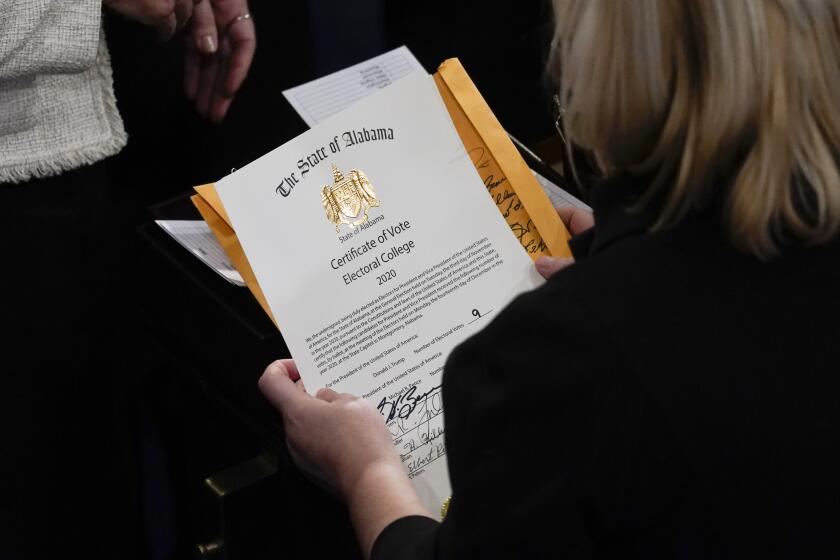Putin’s support of Syrian oppression is in his Russian genes
During his presidency, George W. Bush said plenty of goofy things inadvertently, but the dumbest thing he ever said on purpose was his claim to have looked into the soul of Vladimir Putin. If he had truly gotten a glimpse into that dark, grim place, he would have not come away content and smiling.
Putin is letting his Russian soul show through quite openly these days, particularly with his support of Syrian President Bashar Assad’s brutal crackdown on opponents of his regime. Secretary of State Hillary Clinton complained this week that the Russians were sending helicopter gunships to Syria, a step that would “escalate the conflict quite dramatically.”
The United Nations, the Europeans and the U.S. have been trying to build a united front against Assad, but the Russians -- with their Security Council veto -- are blocking any meaningful step in that direction. Their great idea is to bring Iran into the discussion, which is a bit like bringing in a fox to guard a henhouse.
All of this -- plus Russia’s belligerent reaction to a proposed European missile defense system -- is reminiscent of the bad old days of the Cold War. Of course, there are differences; Russia is not the superpower the Soviet Union was and Putin, for all his ruthlessness, is not a pathological tyrant and mass murderer like Stalin. But certain patterns are the same. The Russians are still picking their friends among the world’s most repressive regimes. They are still paranoid and certain the West is ready to gang up on them. And, like the communist apparatchiks before them, Putin and his team assume everyone is as diabolical, power-hungry and duplicitous as they are.
Though not as bad as it was 50 years ago, trying to deal with the Russians is still a frustrating, infuriating and occasionally alarming proposition. Old habits die hard.
* * * * *
For a good analysis of the state of U.S.-Russia relations, I recommend a recent Global Focus column by Carol J. Williams of the Los Angeles Times.
More to Read
A cure for the common opinion
Get thought-provoking perspectives with our weekly newsletter.
You may occasionally receive promotional content from the Los Angeles Times.










